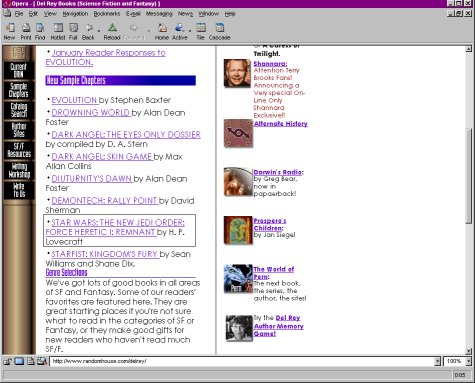Mary Gentle is an British writer of fantasy and science fiction, who finally got some of the attention she deserves in 1999, with her excellent fantasy/secret history book Ash: A Secret History. Before that, she was better known as the writer of the darkly humouristic Grunts, a novel about those bad boys of fantasy Orcs, (featuring such lines as “Pass me another elf, this one has split“), as well as of the science fiction duology Golden Witchbreed/Ancient Light. The latter is what I first read of her and are also the books with which she first gained prominence.
However, some of her more obscure and less accesible books also deserve a wider audience, but apparantely are too difficult or too weird to have gained one. I’m talking of the White Crow series, which consists of several short stories as well as the novels Rats and Gargoyles, The Architecture of Desire and Left to His Own Devices. They take place in a sort of alternate 17th century England, where the compass has a fifth direction to it, (and the directions are all still 90 degrees apart), a female Charles Stuart and Olivier Cromwell, a magic system based on alchemy. And yet their author still insists they are science fiction rather than fantasy.
It’s no wonder then that Mary Gentle has just as outspoken ideas about her role as a science fiction writer:
A slightly less megalomaniac way of saying that I write to reform the SF/fantasy field is to say that I’m a reactive writer. When I see something done wrong, I want to do it right. When I see SF and fantasy novels that insult the intelligence of a weevil, I want to write a novel with an academic book list in the back of it. Or one that bases a lot of obscure English Civil War jokes on the conceit that Charles Stuart and Oliver Cromwell were female. When I get up to here with cyber-utopias fronted by dim young men who do not know where their dicks are, Valentine starts making waspish remarks and gets herself a job with the military-industrial complex. When I have seen more gaming fantasy-magic than even I can take, I want to write about a magic that works by pictorial association from a vocabulary of Baroque images. And when I see SF with a crew from central casting, and a political stance as naïve as the Sun, then I start writing near-future SF about Valentine and Casaubon’s messy home lives and respective families, and Marlowe’s take on the Internet.
